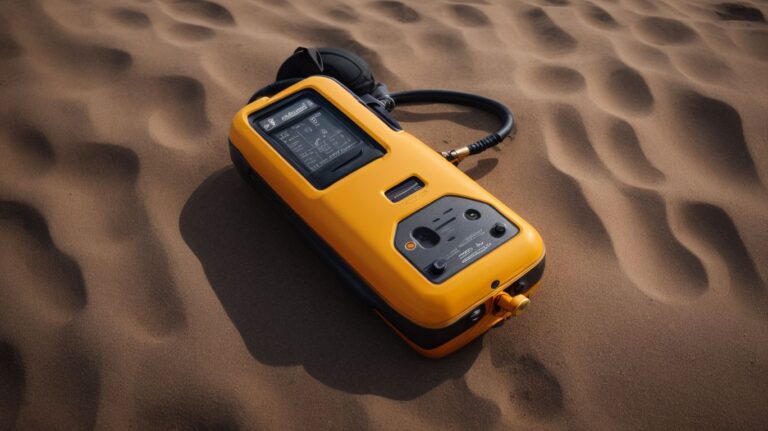Getting the Best Bang for Your Buck: Tire Price Comparison Guide
- How To Choose Arctic Claw WXI - January 20, 2024
- How To Choose BFGoodrich Advantage Control All Season - January 20, 2024
- How To Choose BFGoodrich Winter T/A KSI - January 20, 2024
Ready to get the most for your money on tires? This guide’s here to help! We’ll compare prices and go into detail on key factors you should consider. Plus, we’ll give tips on striking the balance between quality and affordability. Keep reading to learn more!
Comparing tires can be daunting. That’s why we’ve put together the ultimate guide. Get info on brands, performance, durability, and fuel efficiency. All this info can help you find the right tire. And one that fits your budget!
When shopping, remember to factor in additional costs. Installation fees and maintenance can add up. So make sure to consider these too!
We also recommend investing in higher-quality tires. In the long run, they can save you money.
That’s it! With our guide, you can get the best bang for your buck. So sit back and let us help you find the perfect tire!
Factors to Consider When Buying Tires
It’s time to choose the best tires for your car! Here’s a guide to help you get the most bang for your buck:
- Tire Size and Type: Consider performance, durability, and road conditions when selecting the right size and type of tire.
- Tread Life and Warranty: Search for tires with a long tread life and good warranty – this way you can make the most of your money and feel secure.
- Price vs Quality: Look for a balance between price and quality. Low priced tires might not guarantee great performance or durability, while expensive ones may not always be worthwhile.
- Customer Reviews and Ratings: Read customer reviews and ratings before you make a decision – this will give you an insight into other people’s experiences.
Don’t forget to look at the tire manufacturer’s reputation, customer support services, and extra features or technologies. Taking all of these factors into account will help you decide which tires best suit your needs. So don’t wait – start exploring your choices today!
The Importance of Comparing Tire Prices
It’s key to compare tire prices before buying. This way, you can be sure you get the best value and quality, without compromising on safety. To show its importance, let’s look at a table.
Why Compare Tire Prices?
| Brand | Tire Model | Price (USD) | Avg. Lifespan (miles) |
|---|---|---|---|
| Brand A | Model X | $150 | 40,000 |
| Brand B | Model Y | $200 | 50,000 |
| Brand C | Model Z | $180 | 45,000 |
Here, we can see that, although close in price, each tire offers different lifespans. This shows that just looking at price isn’t enough – you have to consider lifespan and durability too.
Also, more expensive tires don’t always mean better performance or longevity versus moderately-priced ones. It’s about finding the right balance between cost and quality.
Consumer Reports say there’s often not much difference in performance between high-end and mid-range tires. So, you need to compare prices and information about tire models carefully, for a decision that prioritizes safety and affordability.
How to Compare Tire Prices
- Research tire brands and models online and check out retail websites.
- Look for discounts, special offers, and promotions.
- Compare prices side by side and check for additional perks.
- Check out the reputation and customer reviews of both retailer and the tire brand.
- Consider more than just the purchase price – warranty, installation, and other benefits.
- Make a choice based on budget and needs.
When comparing tire prices, return policies and customer satisfaction guarantees should be taken into account. This can affect experience with product and retailer.
Pro Tip: Don’t only go for the cheapest tire. Balance cost-effectiveness and quality for optimal performance and safety on the road.
Analyzing the Quality and Reputation of Tire Brands
Analyzing tires? It’s crucial. Let’s compare price, performance and customer reviews to get the right brand.
We created a table with info about brands – name, range, life, traction, noise, and rating. This’ll help you assess quality and reputation.
Also, look at warranty coverage and availability of replacement tires in your region. These details will impact your experience.
Don’t miss out; get all the info from our analysis to get the best value. It’s time to choose carefully and drive confidently!
Understanding Different Types of Tires and their Price Range
When thinking about tire prices, many factors must be considered. The type of tire you select can have a major effect on the cost, as some designs and materials may be pricier than others. To aid your decision, here is a table with tire types and their related prices.
Take a peek at this professionally made table that outlines the different types of tires and their cost brackets. This visual guide will help you make sense of it all without extra complexity.
| Tire Type | Price Range |
|---|---|
| All-Season | $70 – $150 |
| Performance | $100 – $300 |
| Winter | $80 – $200 |
| Off-Road | $150 – $400 |
| Eco-friendly | $80 – $180 |
The table above shows 5 main tire categories and their corresponding prices. All-season tires, which can be used year-round, vary from $70 to $150. Performance tires, for improved handling and speed, are pricier ($100 – $300). Winter tires cost between $80 and $200.
Specialty off-road tires, for their strength and durability, come at a higher price range ($150 – $400). For those concerned with the environment, eco-friendly tires ($80 – $180) are also available.
It is worth remembering that prices may differ depending on brand, tire size, and special features from certain brands. Keeping this in mind will help you purchase the right tire that fits your needs and budget.
Consumer Reports has found that the same tire model can cost up to $40 more from one retailer to another. So, it is smart to compare prices from different sources before you buy.
Budgeting for Tires: Balancing Price and Quality
Research, compare prices and find the best deals from retailers or websites. Look out for discounts and promotions or even shop during off-seasons to save money. Quality is a must. Investing in high-quality tires might cost more at first, but they will perform better in the long run, offering durability, safety and everything else you need.
Assess your needs. Think about your driving habits, climate, and vehicle type. Different tires have different performances on wet and dry roads and are made for specific vehicles.
Get professional guidance. Ask tire experts or mechanics for personalized recommendations according to your budget and preferences. Pay attention to warranties, mileage ratings and tread patterns for improved grip and handling.
It’s essential to make an informed decision when budgeting for tires. Find quality tires that match your pocket and needs. Don’t forget that safety is the topmost priority when it comes to choosing the right set of tires. Get the most out of your investment and don’t regret it!
Tips for Getting the Best Deals on Tires
- Search for seasonal tire sales or promos.
- Compare prices online from different shops.
- Buy reputable brands with good customer reviews.
- Check for any discounts or rebates from manufacturers.
- Factor in installation costs when comparing prices.
- Ask if the shop gives any warranties or guarantees on the tires.
- Consider package deals that include tires, installation, balancing, and alignment.
- Keep an eye out for special events like Black Friday or end-of-season clearance sales for better deals.
- Don’t compromise on quality when searching for the best prices.
- Invest in durable tires that provide optimal performance for your safety.
- Sign up for email newsletters or follow tire retailers on social media – this way you’ll know about exclusive offers and limited-time promotions.
- Take action now to maximize savings and get the best tires for your vehicle.
Conclusion
To conclude our tire price comparison guide, it’s essential to consider the quality, brand reputation, and features of each tire. The cheapest option may not be the best value long-term. Search for a balance between affordability and performance. Investing in higher quality tires from reputable brands can help prevent expensive repairs and replacements.
Don’t forget other aspects like tread life, traction, wet/dry grip, and fuel efficiency. These elements contribute to the tire’s performance and longevity.
In addition, advancements in technology have caused cheaper, better quality tires. This is great for consumers, who now have a wider range of options at different prices.
By being aware of different tire options and taking into account all these considerations, you can make a wise investment. This will provide great value and enhance your driving experience with optimal performance and safety.
Frequently Asked Questions
1. Q: What factors should I consider when comparing tire prices?
A: When comparing tire prices, you should consider the brand, tire size, type of tire (all-season, summer, winter), tread pattern, and warranty. Additionally, it’s important to factor in the reputation of the tire manufacturer and the reviews of the specific tire model.
2. Q: Are expensive tires always better than cheaper ones?
A: Not necessarily. While expensive tires often offer advanced technology and better performance, cheaper tires can still provide decent quality and safety. It’s essential to find a balance between the price and the overall value that the tire offers for your specific needs.
3. Q: Are there any sales or discounts available for tires?
A: Yes, many tire retailers offer sales and discounts throughout the year, especially during holiday seasons such as Black Friday or Memorial Day. Additionally, some tire manufacturers provide rebates or promotions for specific tire models. It’s always worth checking for any ongoing deals to get the best possible price.
4. Q: Should I consider buying used tires to save money?
A: It’s generally not recommended to buy used tires. Used tires may have hidden damage or worn-out tread, which can compromise your safety on the road. Moreover, the performance and longevity of used tires may be uncertain. Investing in new tires, even if they are slightly more expensive, ensures your safety and peace of mind.
5. Q: Can I negotiate tire prices with the retailer?
A: In some cases, you may have room for negotiation, especially if you are purchasing a complete set of tires or if you have found a lower price at a competitor. It never hurts to ask the retailer if they can offer any additional discounts or benefits. However, keep in mind that not all retailers may be open to negotiation.
6. Q: What are the benefits of purchasing tires online?
A: Buying tires online can provide several benefits, such as access to a wider range of options, the ability to easily compare prices from different retailers, convenience of home delivery or local installation services, and sometimes even lower prices due to online-exclusive deals. However, it’s important to factor in any additional costs like shipping or installation fees before making a decision.







